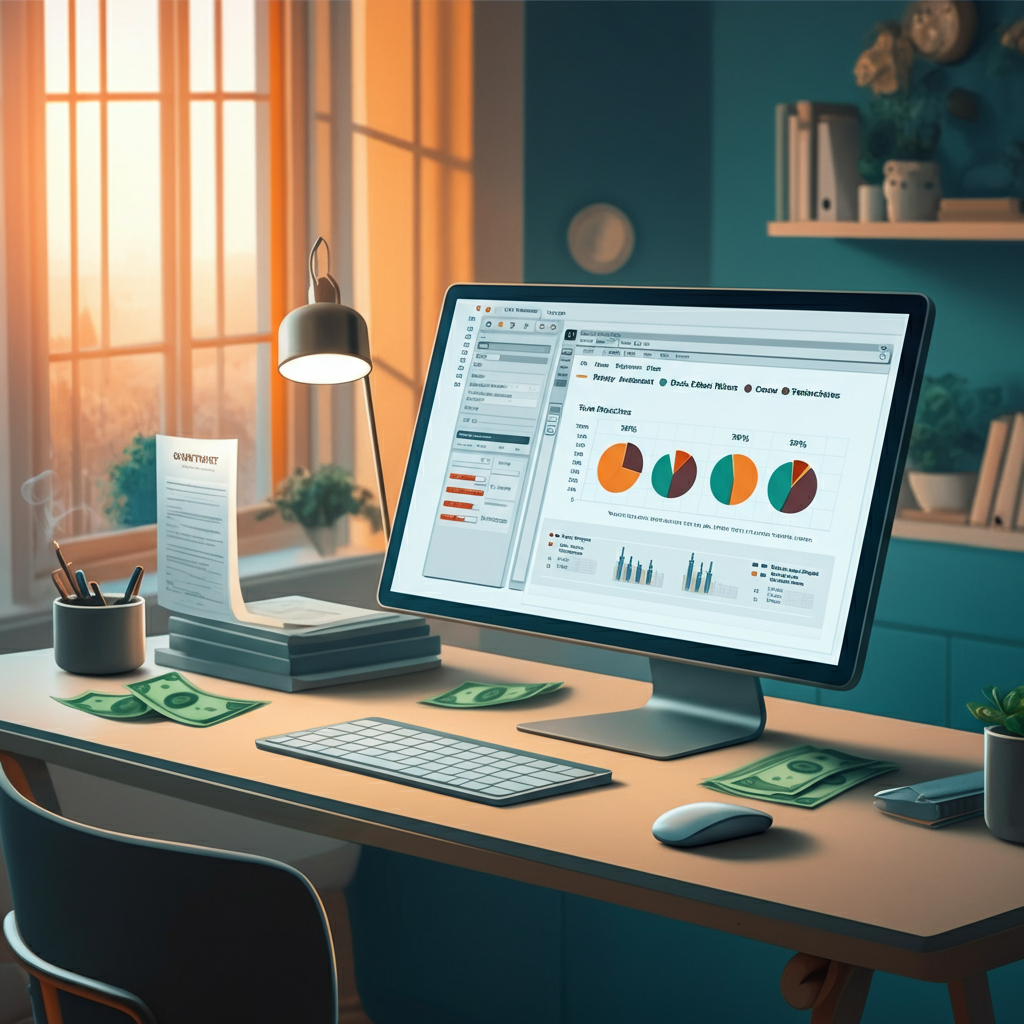Tax season doesn’t have to be a headache. For freelancers and self-employed individuals, understanding tax deductions for freelancers in 2025 can mean the difference between owing thousands and getting money back. Whether you’re a graphic designer working from your home office, a writer hustling between coffee shops, or a consultant managing clients worldwide, knowing which expenses you can deduct is crucial for maximizing your income and minimizing your tax burden.
This guide breaks down the most valuable tax deductions for freelancers in 2025, including recent changes to tax laws that could impact your bottom line. From home office expenses to retirement contributions, we’ll help you identify every legitimate deduction you’re entitled to claim.
Understanding Tax Deductions for Freelancers 2025: Your Foundation for Savings
Before diving into specific deductions, it’s important to understand what qualifies as a legitimate business expense. The IRS allows self-employed individuals and sole proprietors to deduct ordinary and necessary expenses related to running their business. An expense is “ordinary” if it’s common in your industry and “necessary” if it helps you operate your business effectively.
These tax deductions for freelancers in 2025 reduce your adjusted gross income, which ultimately lowers the amount you owe in income taxes. For freelancers, this also impacts your self-employment tax—the Social Security and Medicare taxes you pay as both employer and employee.
When you file your taxes using Form 1040, you’ll report your business income and expenses on Schedule C. You’ll also need to complete Schedule SE to calculate your self-employment tax. Understanding these forms is essential for accurately reporting your tax deductions as a business expense.
Key Tax Deductions and Law Changes for Freelancers in 2025
The tax landscape is constantly evolving, and 2025 brings several important updates freelancers need to know:
-
Increased Standard Deduction: The higher standard deduction may influence whether you itemize deductions or not.
-
Self-Employment Tax Threshold Updates: Changes mean tracking your net earnings carefully to determine tax obligations.
-
Qualified Business Income (QBI) Deduction Modifications: Eligibility updates may allow you to deduct up to 20% of your qualified business income.
-
Energy-Efficient Home Office Improvements: New credits encourage sustainable workspaces.
-
Digital Assets and Cryptocurrency: Fresh IRS guidance clarifies how to handle crypto for freelancers.
-
Retirement Contribution Rule Revisions: New rules may allow you to save more while lowering taxable income.
Home Office Tax Deductions for Freelancers in 2025
The home office deduction is one of the most valuable—and most misunderstood—tax deductions for freelancers in 2025. To qualify, you must use a portion of your home regularly and exclusively for business purposes.
Requirements and Calculations
-
Your principal place of business
-
Exclusively used for business
-
Used regularly (not occasionally)
Simplified Method: Multiply your office square footage (up to 300 sq ft) by $5.
Regular Method: Deduct the business-use percentage of rent, mortgage interest, utilities, and insurance.
Common Mistakes to Avoid
-
Using non-exclusive spaces (e.g., kitchen table)
-
Failing to document the area
-
Forgetting indirect expenses like utilities or internet
According to Creative Circle, many freelancers reduce tax liability significantly by maintaining accurate home office records.
Freelancer Business Expenses and Tax Deductions in 2025
Running a freelance business includes many deductible costs. If the expense helps you earn income, it likely qualifies as a tax deduction for freelancers in 2025.
Equipment and Software
-
Computers, laptops, tablets
-
Professional software subscriptions
-
Office furniture and supplies
-
Smartphones used for business
Use Section 179 to deduct qualifying equipment in the same year of purchase.
Online Services and Subscriptions
Deduct:
-
Website hosting and domain costs
-
Cloud storage and collaboration tools
-
Payment processing fees (Stripe, PayPal)
Professional Development
Deduct:
-
Online courses and certifications
-
Industry conferences and workshops
-
Professional books and coaching
Education and Training Tax Deductions for Freelancers 2025
Continuous learning keeps you competitive — and deductible. Education expenses that maintain or improve skills for your current business qualify.
Deductible Expenses Include:
-
Course fees and materials
-
Travel and lodging for workshops
-
50% of meals during business education events
Not Deductible:
-
Training for a new career
-
Minimum education requirements
-
Personal hobby courses
Example: A freelance writer taking a creative writing course can deduct it, but not a psychology degree program.
Health Insurance Tax Deductions for Freelancers 2025
Health insurance is costly, but freelancers can deduct 100% of health insurance premiums in 2025.
Deductible Premiums:
-
Medical, dental, and vision insurance
-
Long-term care (some limits apply)
You can claim this even without itemizing, directly on Form 1040.
Important Limitation:
You cannot deduct premiums for months you were eligible for an employer-sponsored plan (including a spouse’s).
Freelancers enrolled in the Health Insurance Marketplace may also qualify for the Healthcare Premium Tax Credit, which offers added 2025 savings.
Retirement Contribution Tax Deductions for Freelancers 2025
Retirement plans are not just for corporate employees—freelancers can also reduce taxes and build wealth.
Retirement Options
-
SEP IRA: Up to 25% of net self-employment income (max $69,000).
-
SIMPLE IRA: Up to $16,000 (+$3,500 if 50+).
-
Solo 401(k): Contribute as employer and employee, up to $69,000 total.
Contributions to these accounts are tax-deductible, reducing your adjusted gross income. According to ChooseFI, maximizing retirement contributions is among the most effective tax deductions for freelancers in 2025.
Additional Valuable Tax Deductions for Freelancers 2025
Business Travel
Deduct:
-
Airfare, train, or car rentals
-
Hotels and 50% of meals
-
Baggage and transport fees
Marketing and Advertising
-
Social media ads
-
SEO and content creation
-
Website design and maintenance
Professional Memberships
-
Trade associations
-
Industry publications
-
LinkedIn Premium and networking fees
Legal and Professional Fees
-
Accountants, bookkeepers, or attorneys
-
Tax preparation and business consulting
Office Supplies
From stationery to postage—everyday supplies are legitimate tax deductions for freelancers in 2025.
Final Thoughts
Mastering tax deductions for freelancers in 2025 can save you thousands and empower smarter business decisions. Stay organized, keep receipts, and consult a tax professional to ensure full compliance and maximum savings.
By understanding and leveraging these deductions, freelancers can confidently navigate tax season and keep more of what they earn.






